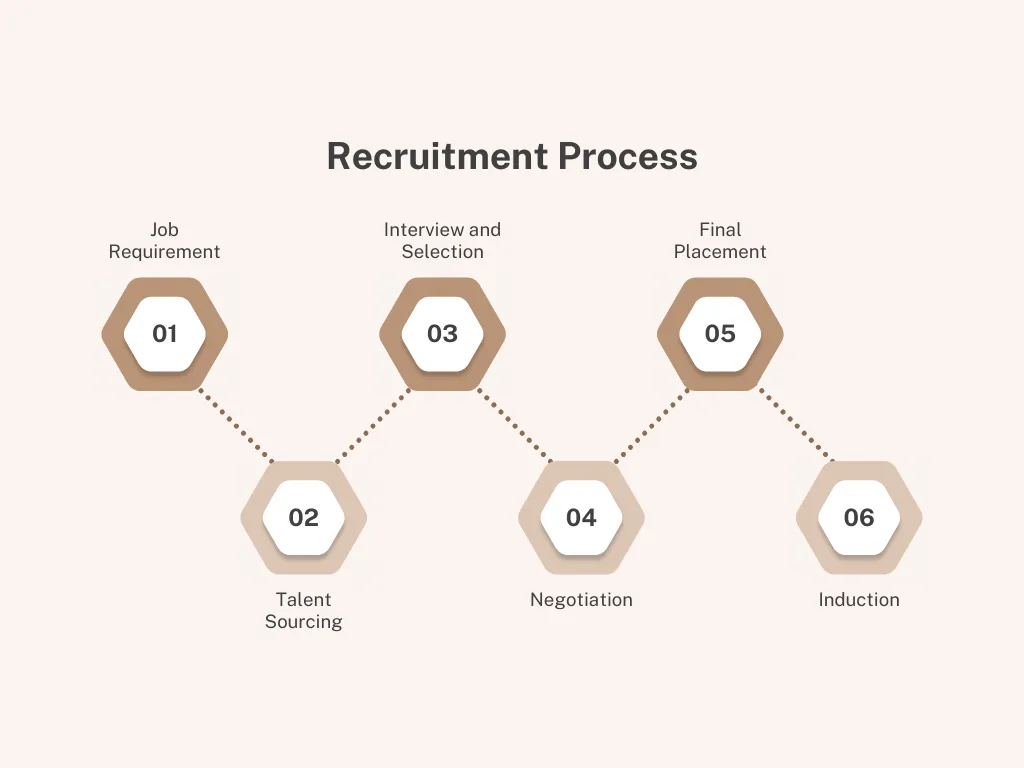Table of Contents
Introduction: In-Demand Skills
The job market is in a constant state of flux, driven by rapid technological advancements, globalization, and economic shifts. As we move into 2024, the types of skills that employers prioritize are evolving at an unprecedented pace. This dynamic environment requires a keen understanding of current trends to remain competitive and relevant in the workforce.
Technological progress, particularly in areas such as artificial intelligence, machine learning, and automation, is reshaping industries and redefining job roles. Employers are increasingly seeking candidates proficient in these advanced technologies to stay ahead in the competitive market. The integration of digital tools and platforms into everyday business operations has significantly elevated the importance of digital literacy and technical acumen.
Globalization has further complicated the skill landscape by fostering a more interconnected and interdependent world. As businesses expand their reach across borders, there is a growing demand for professionals who can navigate diverse cultural contexts and manage international teams effectively. Multilingualism, cultural intelligence, and the ability to adapt to various markets have become invaluable assets.
Economic fluctuations also play a critical role in shaping skill requirements. The COVID-19 pandemic, for instance, accelerated the adoption of remote work and digital collaboration tools, leading to a surge in demand for skills related to virtual communication, project management, and cybersecurity. As the global economy continues to recover and adapt, these skills remain essential for maintaining operational resilience and efficiency.
As we delve deeper into the top in-demand skills for 2024, it is crucial to recognize that the job market’s evolution is a complex interplay of multiple factors. Understanding these driving forces provides valuable context for the specific skills that are gaining prominence and informs strategic career planning and talent development initiatives.
Digital Literacy and Tech Savviness
In the rapidly evolving job market of 2024, digital literacy and tech savviness have become imperative for professionals across all industries. Employers are increasingly seeking individuals who not only possess proficiency in essential software tools but also have a deep understanding of various digital platforms. This encompasses a broad spectrum of skills, from basic computer operations to advanced technical know-how.
One of the key components of digital literacy is proficiency in software tools. Familiarity with word processors, spreadsheets, and presentation software is now considered a baseline requirement. Beyond these, many employers look for expertise in specialized tools relevant to their industry. For example, proficiency in project management software like Asana or Trello, and design tools such as Adobe Creative Suite and EdnBox can significantly enhance an employee’s productivity and efficiency.
Understanding digital platforms is another critical aspect. In the current digital age, businesses operate on various online platforms, including social media, e-commerce sites, and content management systems. Employees who can navigate these platforms effectively, and leverage them for marketing, sales, and customer engagement, bring invaluable skills to their organizations.
Adaptability to new technologies is equally crucial. The pace of technological advancement necessitates a workforce that can quickly learn and integrate new tools and systems. For instance, as artificial intelligence and machine learning become more prevalent, understanding these technologies and their applications can provide a competitive edge in the job market.
Specific tech skills like coding, data analysis, and cybersecurity are in particularly high demand. Coding skills, including languages such as Python, Java, and SQL, are essential for developing software, managing databases, and automating processes. Data analysis skills enable professionals to interpret complex datasets and derive actionable insights, which are invaluable for decision-making. Cybersecurity expertise is critical in protecting organizational data from breaches and ensuring compliance with data protection regulations.
These digital skills are not confined to the tech industry alone; they are applicable across various sectors, including healthcare, finance, education, and retail. As digital transformation continues to reshape industries, the demand for digitally literate and tech-savvy professionals will only increase, making these skills indispensable for career growth in 2024 and beyond.
Data Analysis and Interpretation
In today’s rapidly evolving business landscape, data analysis and interpretation have become indispensable skills. The ability to derive actionable insights from vast datasets is not just a competitive advantage but a necessity. Data-driven decision-making enables organizations to make informed choices, predict trends, and optimize operations, significantly enhancing their efficiency and profitability.
Data analysis involves collecting, processing, and analyzing raw data to extract meaningful information. This process includes identifying patterns, establishing correlations, and making predictions. Interpretation, on the other hand, entails understanding the implications of these findings and communicating them effectively to stakeholders. Together, these skills empower businesses to turn data into strategic assets.
Proficiency in data analysis and interpretation can add immense value to an organization. It allows companies to tailor their strategies based on factual evidence, thereby minimizing risks and maximizing returns. For instance, by analyzing customer behavior data, businesses can personalize marketing efforts, improve customer retention, and boost sales. Similarly, operational data analysis can lead to cost reductions and enhanced productivity.
Several tools and software have become integral to the data analysis process. Python, with its extensive libraries such as Pandas and NumPy, is widely used for data manipulation and analysis. R, another powerful language, excels in statistical analysis and graphical representation. Tableau, a leading data visualization tool, allows users to create interactive and shareable dashboards, making complex data more accessible and understandable.
The growing reliance on data underscores the need for professionals skilled in these areas. As we move into 2024, the demand for expertise in data analysis and interpretation is expected to continue its upward trajectory. Mastery of these skills not only enhances employability but also positions individuals to drive innovation and growth within their organizations.
Emotional Intelligence and Interpersonal Skills
In today’s dynamic work environment, emotional intelligence (EQ) and interpersonal skills have emerged as pivotal competencies that employers highly value. Emotional intelligence, which encompasses self-awareness, empathy, and emotional regulation, plays a crucial role in fostering a positive and productive workplace. Interpersonal skills, including effective communication, teamwork, and conflict resolution, are equally essential in ensuring seamless collaboration among team members.
High EQ allows individuals to navigate complex social interactions and manage their own emotions effectively. For instance, leaders with high emotional intelligence are often more adept at understanding their team members’ needs and motivations, leading to improved morale and productivity. Such leaders are better equipped to handle workplace stress and can diffuse tension before it escalates into conflict, thereby maintaining a harmonious work environment.
Empathy, a core component of emotional intelligence, enables employees to connect with their colleagues on a deeper level. This connection fosters a culture of mutual respect and support, which is instrumental in enhancing teamwork. Teams that operate with high levels of empathy tend to have better communication and are more likely to collaborate effectively. For example, in project-based settings, team members who exhibit empathy are more likely to share knowledge and resources, leading to successful project outcomes.
Interpersonal skills such as active listening and clear communication are fundamental in ensuring that messages are conveyed accurately and misunderstandings are minimized. Effective communicators can articulate their thoughts and ideas clearly, which is essential for collaboration and decision-making. Conflict resolution, another critical interpersonal skill, involves navigating disagreements in a constructive manner. Skilled conflict resolvers can find common ground and mediate disputes, ensuring that conflicts do not hinder productivity.
Real-world examples abound of how high EQ and strong interpersonal skills contribute to better leadership and collaboration. Consider a scenario where a manager with high emotional intelligence successfully leads a diverse team by recognizing and valuing each member’s unique contributions. This inclusive approach not only boosts team cohesion but also leverages diverse perspectives, driving innovation and achieving organizational goals.
Adaptability and Continuous Learning
In today’s rapidly evolving job market, adaptability and continuous learning have emerged as crucial skills that employers highly value. The ability to swiftly adjust to new technologies, market trends, and evolving business strategies is indispensable. Companies are constantly navigating through dynamic environments, and employees who demonstrate flexibility and a proactive approach to change are seen as invaluable assets.
Adaptability involves more than just coping with change; it encompasses the capacity to thrive in it. Employers seek individuals who can step out of their comfort zones, embrace new challenges, and find innovative solutions to problems. This skill is especially pertinent in industries where technological advancements are frequent, and staying current is essential for maintaining a competitive edge.
Equally important is the commitment to continuous learning. The concept of lifelong learning is gaining traction as the modern workforce recognizes that education doesn’t end with formal schooling. Continuous professional development is critical for career growth and personal fulfillment. It includes taking advantage of various learning opportunities such as online courses, workshops, seminars, and certifications that can enhance one’s skill set.
Moreover, a willingness to acquire new skills and knowledge demonstrates a growth mindset, which is highly attractive to employers. This mindset indicates that an individual is not only capable of learning but is also enthusiastic about it. Organizations benefit from employees who are eager to stay updated with industry trends and who take initiative to expand their expertise. This proactive approach can lead to increased productivity, innovation, and overall job satisfaction.
In summary, adaptability and continuous learning are essential for navigating the complexities of the modern workplace. Employees who exhibit these traits are better equipped to handle transitions and contribute to their organizations’ success, making them highly sought after in the competitive job market of 2024.
Critical Thinking and Problem-Solving
As we move into 2024, employers are placing a high emphasis on critical thinking and problem-solving skills. These competencies enable employees to navigate complex situations effectively, ensuring they can identify underlying issues and develop strategic solutions. In an increasingly dynamic work environment, the ability to think critically and solve problems is invaluable across various industries.
In the finance sector, for instance, professionals are often confronted with intricate financial data and market conditions that require careful analysis and strategic decision-making. Critical thinking enables financial analysts to evaluate risks, forecast trends, and make informed recommendations that align with organizational goals.
Similarly, in healthcare, problem-solving skills are essential for diagnosing and treating patients. Medical professionals must analyze symptoms, consider possible diagnoses, and determine the most effective treatment plans. Critical thinking allows healthcare providers to adapt to new information and unexpected challenges, ensuring high-quality patient care.
The engineering field also deeply values these skills. Engineers frequently encounter technical problems that demand innovative solutions. Whether it’s designing a new product, improving a manufacturing process, or troubleshooting system failures, critical thinking and problem-solving are fundamental to driving progress and maintaining operational efficiency.
Moreover, the integration of technology in various industries has heightened the need for these skills. The ability to approach problems with a clear and logical mindset, combined with the capacity to devise practical solutions, is crucial for leveraging technological advancements effectively. As such, critical thinking and problem-solving are not just desirable but essential skills that employers seek to cultivate within their workforce to remain competitive in 2024 and beyond.
Leadership and Management Skills
In the rapidly evolving professional landscape of 2024, leadership and management skills have become indispensable for ensuring organizational success. Effective leaders possess a distinct set of qualities that enable them to guide their teams toward achieving strategic goals. Among these qualities, decision-making stands out as a critical competency. Leaders are often required to make swift and informed decisions under pressure, balancing short-term needs with long-term vision.
Delegation is another essential trait of effective leadership. By assigning tasks to team members based on their strengths and expertise, leaders can optimize productivity and foster an environment of trust and accountability. Moreover, the ability to motivate and inspire is crucial. Leaders who can articulate a compelling vision and engage their teams in that vision are more likely to drive sustained performance and innovation.
On the management front, overseeing projects, teams, and resources efficiently is paramount. This requires a blend of organizational skills, time management, and strategic planning. Managers must ensure that projects stay on track, budgets are adhered to, and resources are allocated judiciously. Effective communication and conflict resolution skills are also vital in maintaining team cohesion and addressing issues promptly.
To develop these leadership and management skills, individuals can benefit from targeted training programs and certifications. For instance, programs like the Harvard Leadership Development Program or certifications such as the Project Management Professional (PMP) can provide valuable insights and practical tools for aspiring leaders and managers. These programs often cover a range of topics, including strategic thinking, team dynamics, and performance management, equipping participants with the necessary skills to excel in their roles.
In conclusion, as organizations navigate the complexities of the modern business environment, the demand for proficient leaders and managers will continue to rise. Investing in the development of these skills not only enhances individual career prospects but also contributes significantly to organizational growth and success.
Sustainability and Social Responsibility
In recent years, the significance of sustainability and social responsibility in the business landscape has surged dramatically. Employers are increasingly prioritizing candidates who demonstrate a profound understanding of environmental issues, corporate social responsibility (CSR), and sustainable business practices. This shift underscores a broader trend towards integrating ethical considerations into core business strategies to achieve long-term success and foster a positive brand reputation.
Organizations are progressively recognizing the value of sustainability in driving innovation and operational efficiency. Employees equipped with skills in sustainability can contribute to reducing waste, optimizing resource use, and enhancing energy efficiency, which not only lowers operational costs but also minimizes environmental impact. Moreover, businesses that adopt sustainable practices often experience improved regulatory compliance and reduced risk, further solidifying their market standing.
Corporate social responsibility (CSR) extends beyond environmental concerns to encompass ethical labor practices, community engagement, and transparent governance. Employees who are knowledgeable about CSR can help companies build stronger relationships with stakeholders, including customers, investors, and the local community. These relationships are pivotal in enhancing a company’s reputation and securing customer loyalty, as consumers are increasingly inclined to support brands that align with their values.
Case studies from leading companies illustrate the tangible benefits of integrating sustainability into business operations. For instance, multinational corporations that have implemented comprehensive sustainability programs report not only financial gains but also increased employee satisfaction and retention. These programs often include initiatives such as sustainable supply chain management, carbon footprint reduction, and social impact projects, which collectively contribute to a more resilient and adaptable business model.
In summary, the ability to navigate and implement sustainability and social responsibility strategies is becoming a critical skill in the modern workforce. As businesses continue to evolve in response to global challenges, employees who can champion sustainable and ethical practices will be indispensable in driving forward-looking, responsible growth.
We are hiring for multiple job opportunities, Apply now before deadline





